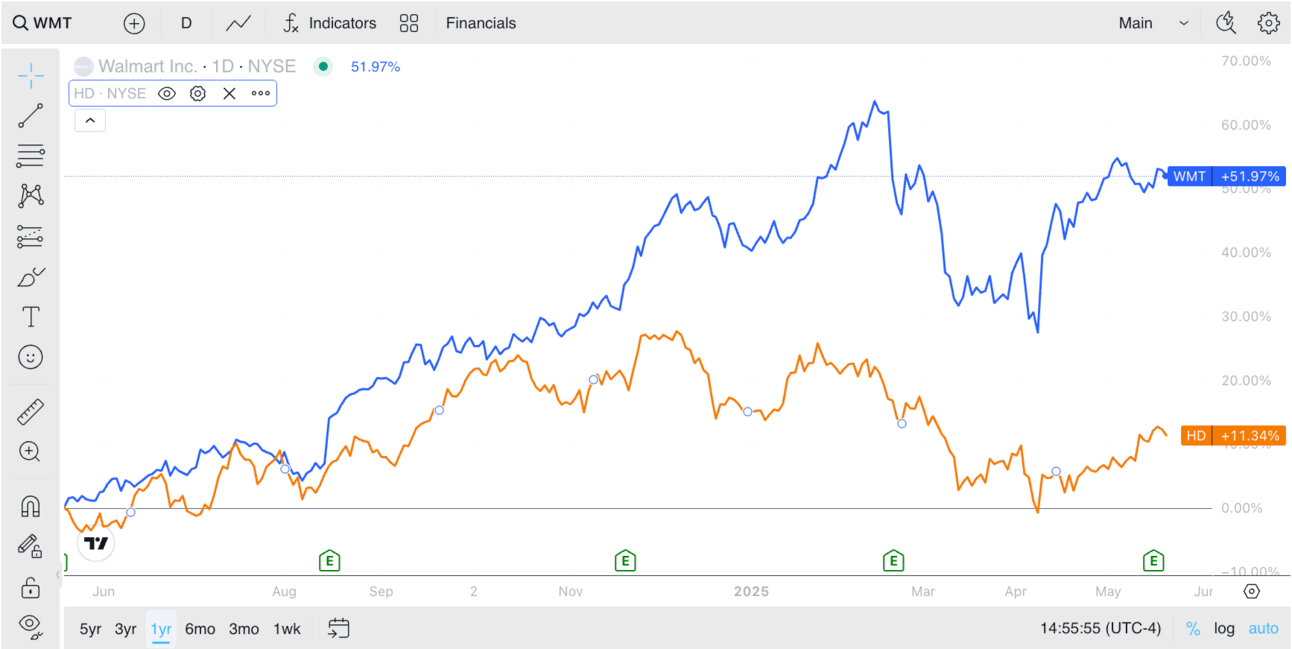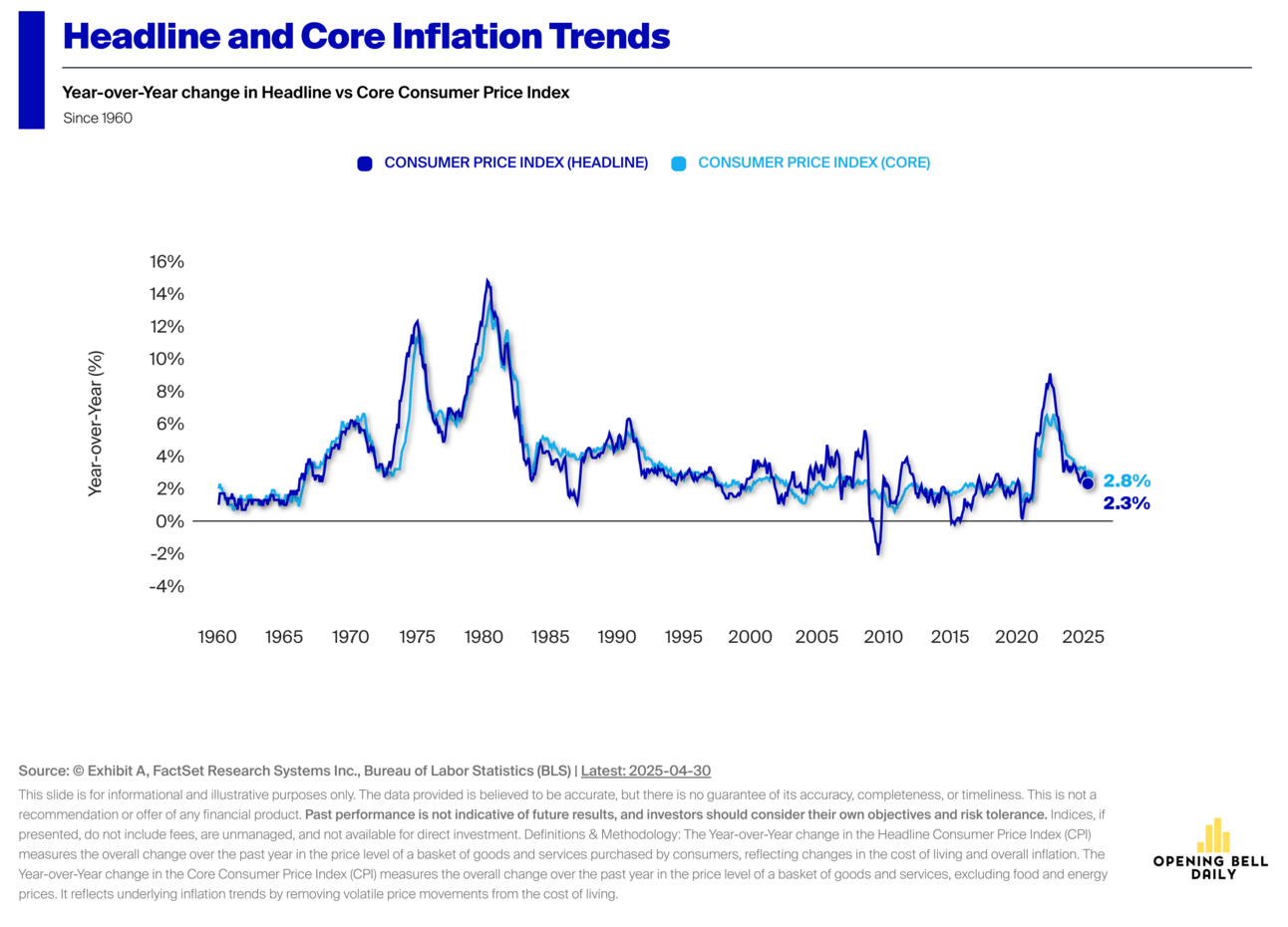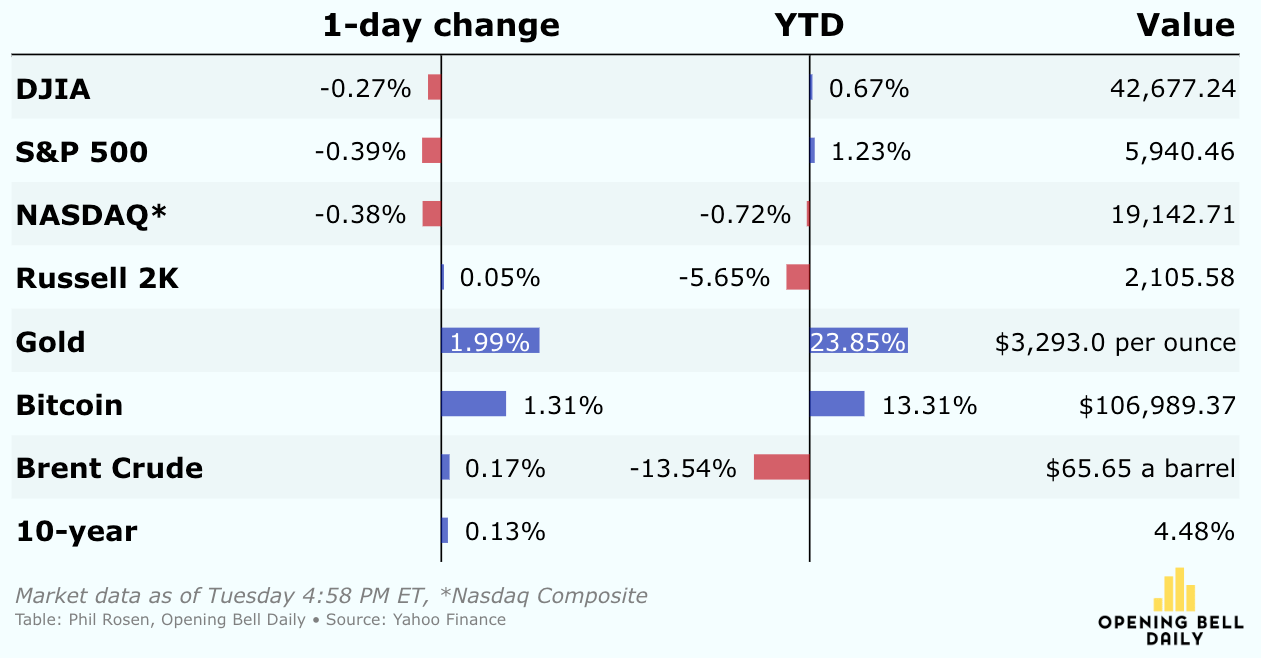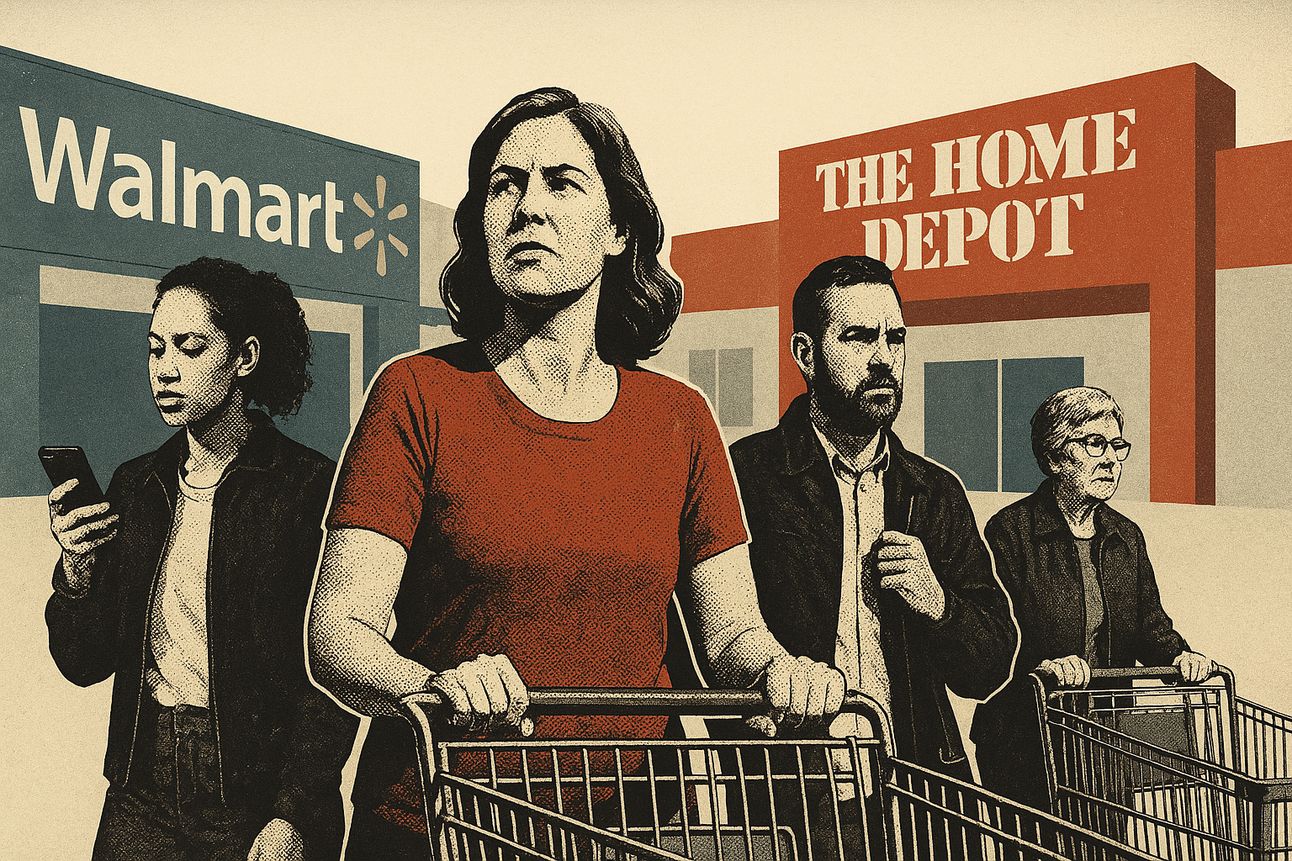Happy Wednesday investors. Today’s edition unpacks how two of the most prominent retailers in the US plan to handle tariffs, Elon Musk’s future with Tesla, the latest Fedspeak, and more.
Let’s dive in.
Today’s letter is brought to you by Thornburg!
Thornburg ETFs can diversify your portfolio during times of volatility.
Key benefits include:
Flexible, intraday trading with real-time pricing
Transparent holdings for greater clarity
Access to Thornburg’s four decades of active management expertise
Tax efficient to minimize capital gains distributions
Offense and defense
It’s a tale of two retailers.
Home Depot is leaning into tariffs by holding prices steady for customers. Meanwhile, Walmart said last week it will do the opposite and raise prices.
That contrast tells you who’s playing offense and who’s playing defense.
“It’s a great opportunity for us to take [market] share, and it’s a great opportunity for our suppliers to take share as well,” said Billy Bastek, Home Depot’s executive VP of merchandising, on a Tuesday earnings call.
"We don't see broad-based price increases for our customers at all going forward,” he added.
Walmart, for its part, is already raising prices and warning of more hikes to come as tariffed goods hit shelves. John David Rainey, Walmart’s CFO, called the speed and magnitude of the price increases “unprecedented.”

Walmart stock has outperformed Home Depot over the last 12 months
That’s a difficult position for a retailer serving lower- and middle-income households, which have already borne the brunt of rising inflation and cost-of-living.
“It is hard to see pressures easing for these consumers until late 2026, when peak effects of tariffs will likely be behind us, real income growth begins to pick up again, and rate cuts are once again in progress,” said Michael Gapen, chief US economist at Morgan Stanley.

Home Depot, on the other hand, has been repositioning for this moment.
Half its inventory is now sourced domestically, and by this time next year no single country will account for more than 10% of its supply chain.
And rather than raise prices like Walmart, Home Depot says it’s trimming tariff-exposed items and working with suppliers to bring costs down and rework production.
To be sure, it’s still plausible that a trade war is not as inflationary as consensus expects, according to Rick Pitcairn II, chief global strategist for Pitcairn, which oversees $10 billion in assets under management.
“If consumers are so strapped, and they choose to just not buy goods that have increased prices, that’s going to come out of corporate earnings and maybe be more recessionary, which could be deflationary,” Pitcairn II told me.
President Trump has made clear he wants companies, not consumers, to absorb any costs tied to tariffs.
Home Depot is taking that cue — and betting that offense will work better than defense.
Market snapshot

Elsewhere
🏦 Cleveland Fed president Beth Hammack sees a complex outlook. Three scenarios seem plausible to her: 1) a one-off price effect of tariffs while economic growth slows, 2) an inflationary impact while the labor market holds up, and 3) a stagflationary outcome with higher prices and slowing economy. (Axios)
🚗 Elon Musk is stepping back from politics. He said Tuesday he plans to cut political spending and that he will focus more on Tesla. Musk also noted that he plans to stay on at least another five years as CEO there. (CNBC)
📉 Alphabet stock fell Tuesday during Google’s big conference. The company announced a VIP-level AI subscription service, among other offerings, that will be $250 per month. It’s called Google AI Ultra and it’s for filmmakers, developers, creative pros, according to the announcement. (TechRadar)
Rapid-fire
Elon Musk said Tesla and xAI will keep buying chips from Nvidia and AMD (CNBC)
President Trump warned Republicans not to “f*ck around” with Medicaid (Axios)
Europe lags the US and China big time in the AI and tech race (WSJ)
Warby Parker stock jumped 14% after Google announced a smart glasses partnership at its I/O conference (CNBC)
Earnings growth is a more critical driver to stock prices than any downgrades to US creditworthiness (Barron’s)
A backlog at the Education Department leaves nearly 2 million student loan borrowers in limbo (CNBC)
Last thing
About me
📰 I’m Phil Rosen, co-founder and editor-in-chief of Opening Bell Daily. I’ve published books, lived on three continents, and won awards for my journalism, which has appeared in Business Insider, Fortune, Yahoo Finance, Bloomberg and Inc. Magazine.
I write our flagship newsletter to prepare you for each trading day, unpacking markets, economic data and Wall Street with analysis you won’t find anywhere else.
Feedback? Reply to this email, ping me on X @philrosenn, or write me directly at [email protected].


